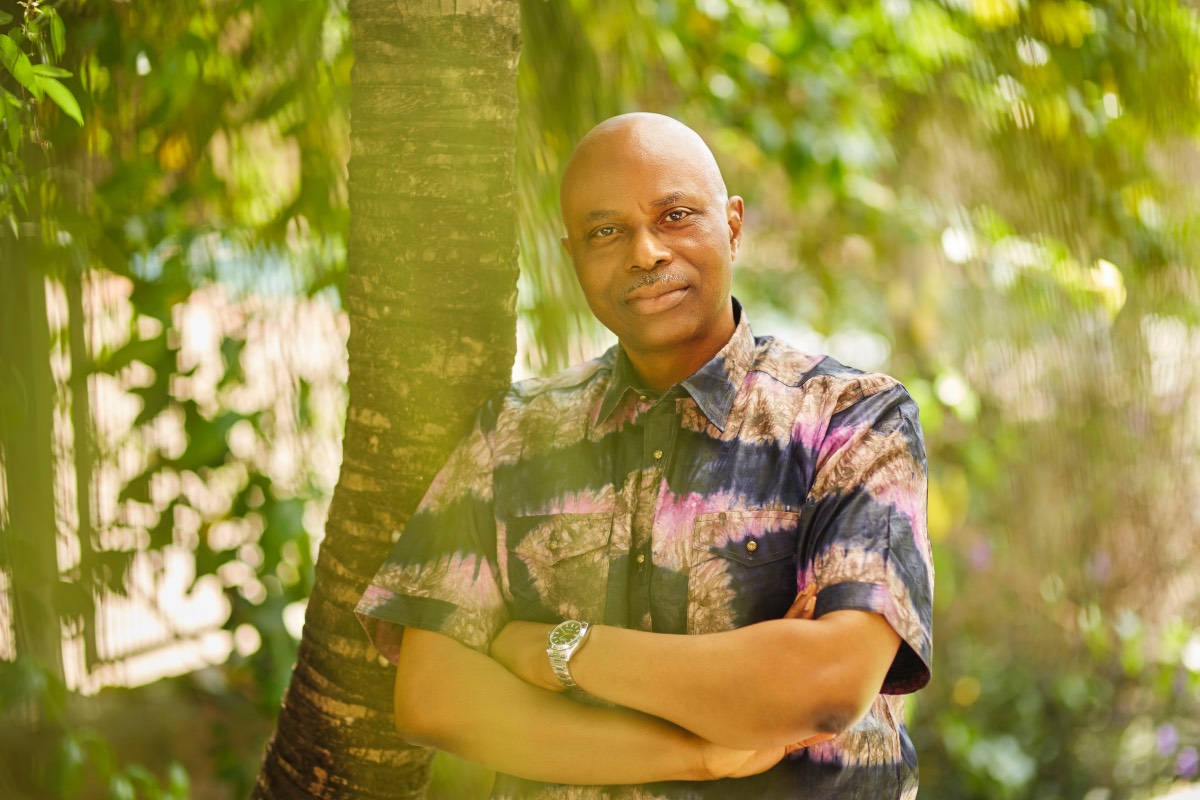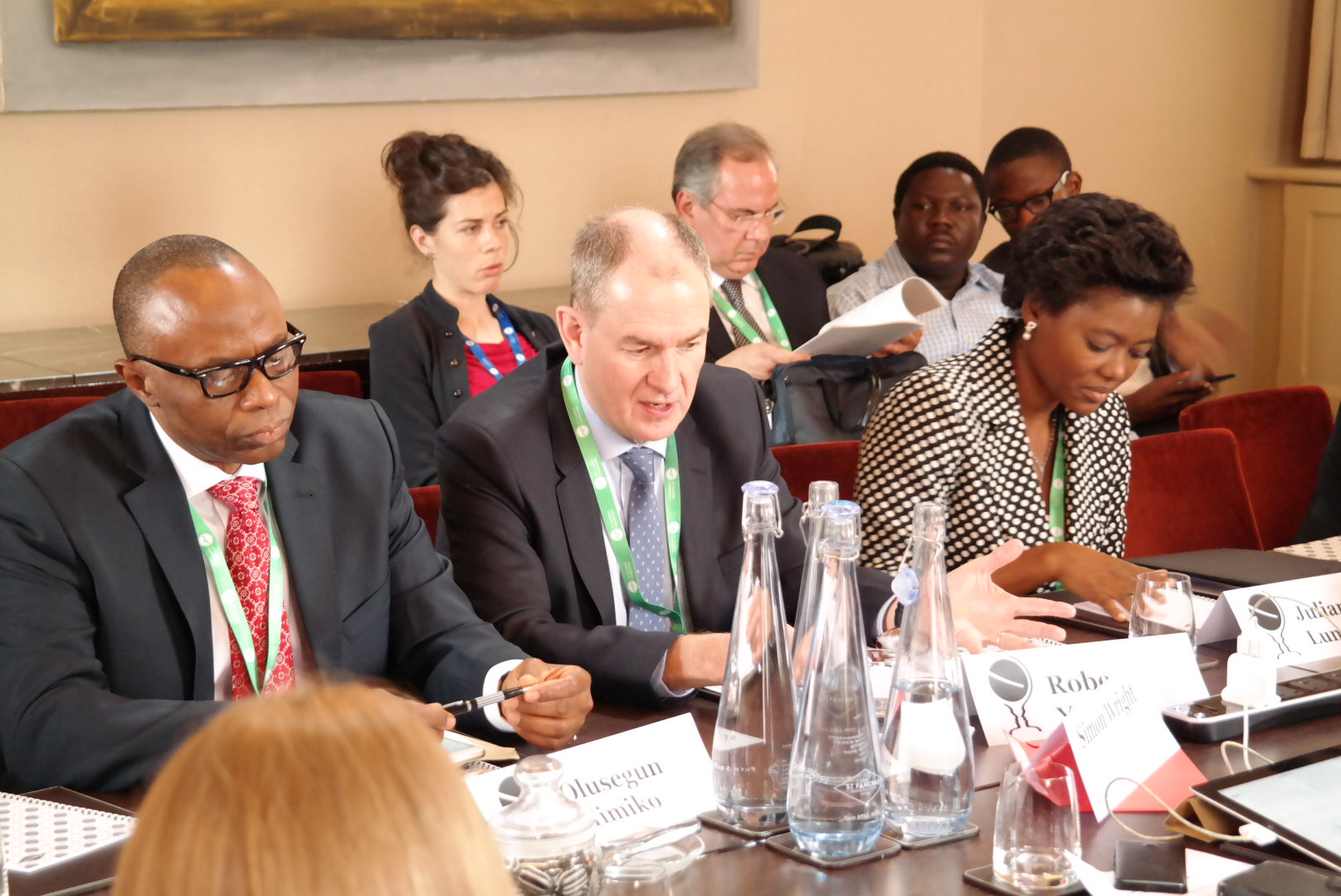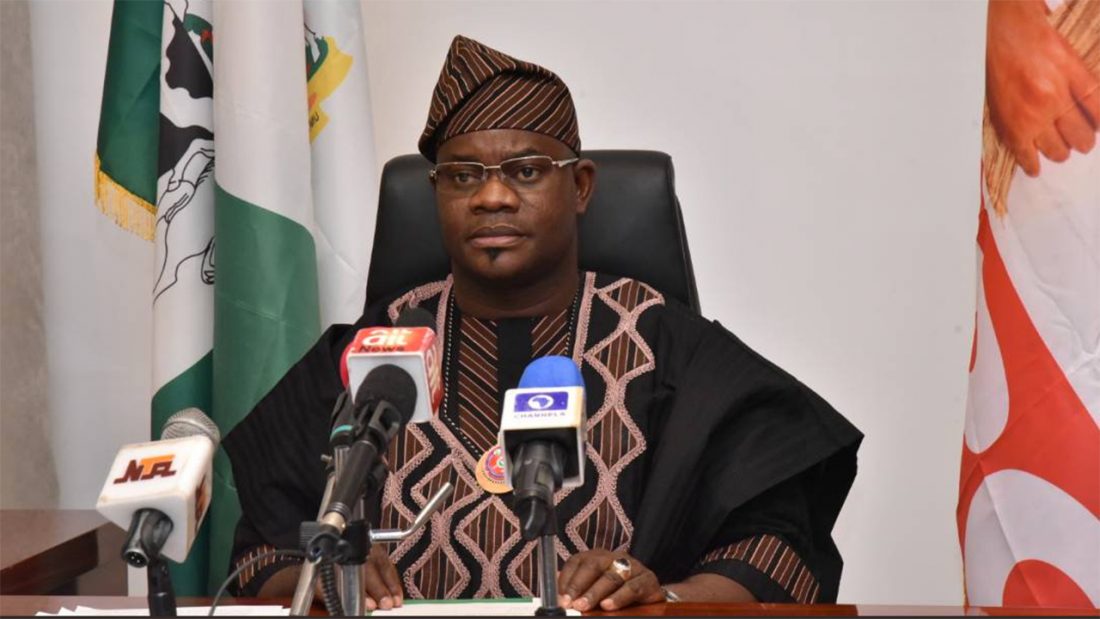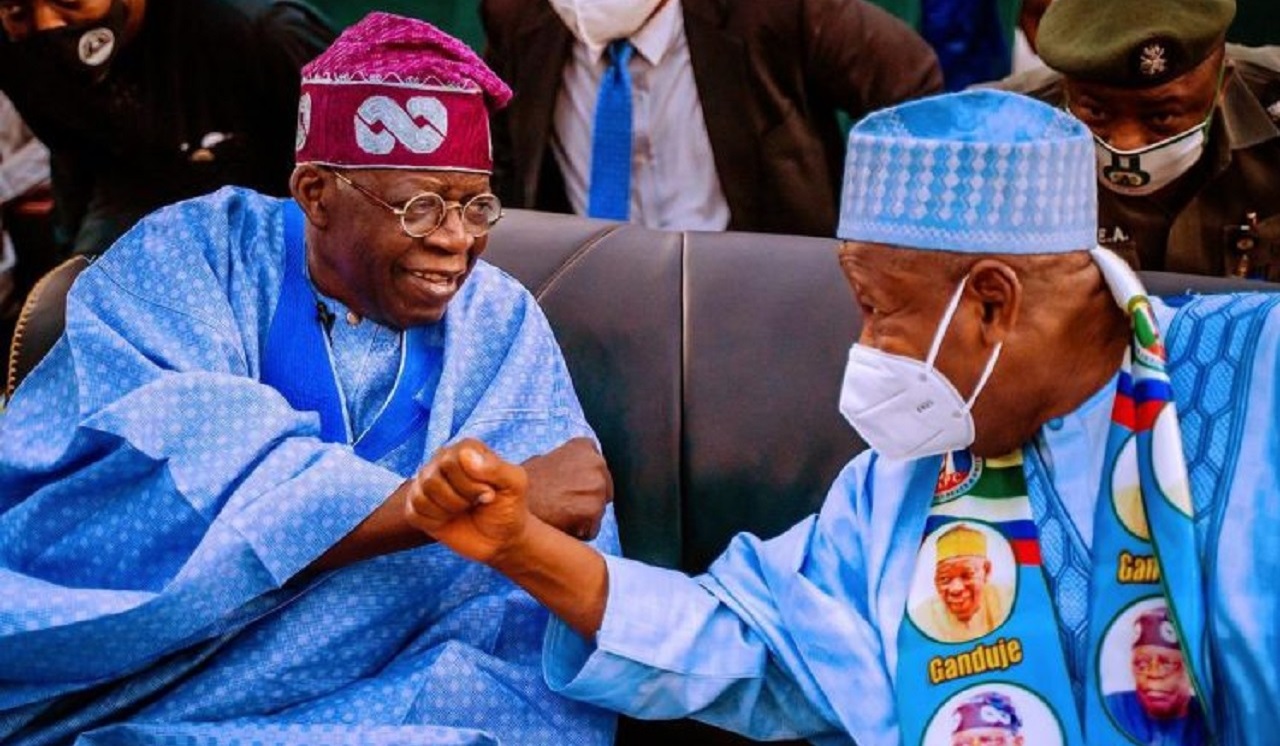
[dropcap]N[/dropcap]o class of Nigerians suffers from prejudicial generalization like our political leaders. From classrooms, to newsrooms, to boardrooms to living rooms, wherever Nigerians meet they are most likely talking about bad political leadership in the country.
I believe that there’s no country in Africa, and possibly the world, whose potential for greatness has been impeded, whose national wealth has been decimated, and whose youth population has been crippled by visionless and purposeless leadership, more than Nigeria.
The pitiful state of Nigeria today, 56 years after gaining independence from Great Britain, is evidence of the poverty of thinking of a majority of the country’s leaders – past and present. This observation is true for all levels of government. And it’s truly tragic.
Too many Nigerian leaders live by a twisted ideology made up of a cocktail of bigotry, misogyny, and demagoguery. The things they say and do, give the overwhelming impression of conmen committed to nothing other than the bottomless pit that is their personal greed and the stroking of their Godzilla-sized egos.
This class of leaders operates like a perverse group of irrepressible sex-crazed maniacs who lack awareness of the social and long-term catastrophic implications of their actions.
Many of them bulldoze their way into political office with a mix of propagandistic campaign promises, hubris, and unimaginable violence. While in office, they retain their hold on power by emasculating the people they are meant to serve, hoodwinking them with superficial claims of achievements.
These bad leaders are anti-intellectuals who divide their people in every way known to mankind – ethnic, religious, region, class, gender; thereby keeping the people fixated on the issues of least importance; while they make away with the wealth of the nation.
Because of this disgraceful road show that has been put up by a majority of politicians in Nigeria, an act that has been on for all of my life, I lost hope in Nigerian leaders, by and large. I had even begun to nurse the thought that perhaps, the leader who can rescue Nigeria from the abyss staring at us is yet to manifest in the political arena.
I hardly stereotype people, thanks to my academic and professional training, and my persuasion as a Christian. I am always on the lookout for difference. The difference in a person, the difference in a moment, and the difference in an environment, as my mentor, Dr. Mike Murdock teaches.
When it comes to Nigerian politicians, I found an undeniable difference in Dr. Olusegun Mimiko. It took barely 10 minutes in his presence for me to note that the Ondo State governor was not only different from the group of politicians that have turned our political process into a dark comedy, but he is actually special. And what better occasion to celebrate the difference in Dr. Mimiko than his 62nd birthday which he marked on the 3rd of October.
The first quality that I noticed was that he was an effective listener. He listened to young people, who his contemporaries would easily dismiss as ‘inconsequential’, and he did this with an attentiveness that a typical Nigerian leader hardly ever gives to anything or anybody.
He made each and every young person in that room feel that what they had to say was important, that they mattered to him. That’s a rare quality to find in a Nigerian leader, especially a governor.
It was at that meeting that I began to piece together the puzzle and answer the question on why all Mimiko’s team members that I met over the previous 24 hours were not just loyalists, but his raving fans. The way his aides talk about him reflects genuine respect, admiration, and aspiration. You don’t have to spend too much time with the adherents of Irokoism – the word coined for Mimiko’s political philosophy – to know that they are not in the game to fill their bellies, but that they are truly inspired by this remarkable leader, and they are hooked onto a cause bigger than themselves.
This point is further strengthened by the fact that Mimiko seeks neither adoration nor adulation. He admits to being camera-shy. And his aides say that he consistently turns down suggestions to launch PR campaigns to boost his image in the press. “His Excellency would rather put the money for PR in the Mother and Child hospitals or in the Caring Heart schools,” John-Paul Akinduro, his digital media assistant confessed. “He is always telling us the opportunity cost of publicity in terms of what the money could do for the [Ondo] people.”
Since that unforgettable meeting with Governor Mimiko, I have interviewed dozens of people in Ondo State – journalists, market women, artisans, doctors, civil servants, politicians, members of his team, and ordinary people on the streets – and the consistent testimonial (even from his political opponents) is that Mimiko is a humble person, he is honest, he is not a quitter, he has a deep compassion for the people he leads, he is stubborn about his beliefs, and he gives you the freedom to be the same about yours. This is a combination of values that is difficult to find among the power elite in Nigeria.
At that meeting, a few months shy of his 7th year as governor, I watched as Mimiko spoke about his defining goal in leadership, the Herculean hurdles he had to scale over to achieve his dream of changing the lives of his people, and his wall-to-wall approach in ushering in a new phase in Ondo State. It was unscripted; it was spontaneous; it was passionate; it was glorious. It was one of the few things I have witnessed that I truly wished had been taped for my catalogue.
I believe that if every Nigerian was privileged to see what I saw, to hear what I heard, I am convinced that there would be little doubt in anyone’s mind that Mimiko is a great leader with a steely resolve to do good by his people, one who defies the norm of Nigerian politics, and who could be trusted to lead Nigeria to greatness.
Undoubtedly, Governor Mimiko has quite a number of admirable qualities, enough to write volumes about. I think there is one that deserves a deeper exploration in this tribute.
“I tell a man’s character not by the way he treats fellow men, but by his reaction to women”, words worth etching in the hearts of our children. This wise saying helps tell the story of the man whom his people call Irókò, the name of a large hardwood tree that could live for up to 500 years.
Dr. Mimiko has a profound and steadfast compassion for women – their health, their welfare, and their prosperity.
“Why should a woman die just because she is bringing a new life into the world?” Mimiko asked himself this question and answered the question. “There is no acceptable reason for a woman’s life to end during childbirth,” he said. He assembled an impressive team and together they designed a public healthcare policy called Abiye aimed at significantly reducing the tragedy of a 545 maternal mortality ratio (deaths in every 100,000) in Ondo State. Abiye means safe motherhood in Yoruba.
He put his political will behind the policy and began to walk his talk. He mapped his policy prescriptions with reality and came up with win-win solutions to removing obstacles to achieving his target. And what’s the result?
In September 2016, seven years after Mimiko became the governor, Ondo State is the safest place to give birth in Nigeria – naturally or by cesarean section. The average maternal mortality ratio in Nigeria was 814 in 2015. In Ondo, today, it is 171 – an amazing 5 times less than that of the country. In just seven years of the governor’s visionary policy and dedication in execution, the tragic figure has been reduced by almost 70%.
Just in case, you are wondering how much this service is delivered to the women. Healthcare is 100% free for pregnant women who live in Ondo State. Healthcare for children in Ondo is free from the incubator to 5 years. 100% free!
That is what leaders do. They articulate an agenda, they get on purpose, they follow through with excellent execution, they track performance, they fix problems along the way, simply put, they get on with the programme of serving and protecting their people.
What Mimiko has achieved in healthcare in Ondo fits the universal definition of good governance and purposeful leadership. This is evident in the awards and endorsements of his revolutionary healthcare programmes from global institutions like the World Bank, World Health Organization, the United Nations agencies like UNICEF, and the UK-based think-tank, Chatham House.
As a matter of fact, the Abiye model, created by Mimiko, has been adopted by the World Bank as a viable template for infant and maternal death reduction in the developing world. Also, its complementing women empowerment programme for traditional birth attendants called Agbebiye – has also been recommended by the World Bank and many African countries are either replicating or adopting it to suit their reality. It makes me wonder what the rest of Nigeria is waiting for.

Mimiko is proof that not only can Nigerians operate at the level of global best practice, but we can also set the standards for the world to follow. Paraphrasing John F. Kennedy, “Great things don’t just happen, people make them happen.”
Mimiko is a rare Nigerian politician who has articulated a definitive ideology for governance. He is a social democrat. He believes that the public sector can work for the people delivering quality services equivalent to the best institutions in the world and it can be cost efficient.
His political ideology is demonstrated in his belief that urban renewal projects don’t have to displace communities, render people homeless, and jobless, and that somehow the prosperity that follows development would eventually trickle-down to everyone. He has turned that belief on its head several times over, proving in the process that the most impactful development projects should start from the bottom of the pyramid.
Everything that Mimiko has achieved in Ondo State has smashed the popular belief in the heavily Bretton Woods influenced development circles in Nigeria that the public sector cannot manage social system efficiently; that public servants can’t manage institutions profitably; and that public service means poor quality service.
He has demonstrated this in the public healthcare system, in agricultural development, in public school transportation, in micro-loans to artisans and SMEs, in youth development, in women empowerment, education, and in infrastructural development.
Ondo State, is the only place where I have witnessed public servants organise a series of events attended by thousands of people, VIPs attending from across Nigeria and all around the world. They didn’t employ any consultant or outside contractors to handle any aspect of the programme. Yet, the weeklong celebration went excellently well. Zero anxieties, zero disaster moments, and zero complaints.“This is no magic,” Mr. Eni Akinsola, the governor’s chief press secretary said, when I enquired. “It is because we have a leader who believes in his people.”
Mimiko’s Caring Heart educational development policies have created the best public elementary school system in the country. Ondo is the only state in Nigeria where senior public servants and even commissioners are voluntarily, without compulsion, withdrawing their children from private schools and enrolling them in the public school system.

I wish I could spend more time chronicling the transformation in Ondo State, but this article provides room for summaries on Mimiko’s revolutionary performance as a governor and leader. I thought to write this tribute because I didn’t want to miss the event of his 62nd birthday, his last as governor of Ondo, to celebrate the brilliance of this sound intellectual and gentleman.
I also hope that this article would inspire some thinking, hopefully, in the days and months to come – especially, where it is needed most – in the corridors of power in Nigeria.
And most importantly, I write this for his wife, Olukemi and his children. So they would know that when they are not in the room, he is a proud husband and father who talks about them a lot and tells how grateful he is for the sacrifice that they make for him to be able to pursue his dreams. For his children, especially, so that when they read this, they would be further reassured of what they already know about their father. That he is a complete definition of an exceptional person, who has built a legacy as a leader and who had the courage of his convictions and pursued them with excellence.
This should be one more reason, not just for the Mimiko family but the entire people of Ondo State to be proud of him.
Aziza Uko is a Nigerian publisher who is the Executive Editor of The Trent. She is also Chief Executive of Ziza Group, a company she founded in 2009. She is an award-winning graduate of marketing and a marketing communications professional with over 17 years post graduation experience. She is a writer, editor, and music lover. She can be reached on email HERE, on Twitter at @azizauko, and Facebook HERE.
The opinions expressed in this article are solely those of the author.








![Canadian Senate Commends Burna Boy, Notes Grammy Winner’s Sold Out Shows [WATCH] entertainment activities Nigerian Singer Burna Boy](https://www.thetrentonline.com/wp-content/uploads/2019/11/https___cdn.cnn_.com_cnnnext_dam_assets_191001102612-burna-boy-at-coachella.jpg)



